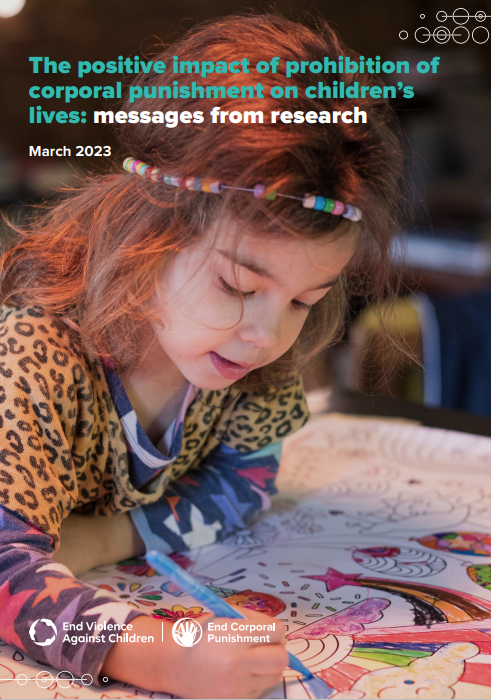Updated briefing highlights evidence of positive impact of prohibition on children’s lives
Progress towards universal prohibition of all corporal punishment is fast accelerating. More than a third of
UN member states have now prohibited corporal punishment in all settings including the family home.
But research comparing the prevalence of and attitudes towards corporal punishment before and after law reform is available in only a few of these. In some states, no research has directly asked children about their experiences; in others, different questions or different samples have been used in studies carried out before and after prohibition, making strict comparison between data difficult.
Nonetheless, a growing collection of evidence suggests that prohibition is associated with changes in attitudes and practice that positively impact children's lives. This briefing paper summarises the evidence available, both individual country level research and comparative research that compares countries with and without prohibition of corporal punishment.
While much more research is needed, there is growing evidence that prohibition of corporal punishment - especially when accompanied by ongoing, comprehensive measures of implementation - is connected with significant decline in approval and use of violent punishment of children. There is also a growing collection of evidence that bans on corporal punishment are connected with reductions in other wider forms of violence including child murder, youth fighting, forms of gender based violence and more.
Research headlines from some countries with prohibition of all corporal punishment of children:
Sweden
Half of children regularly smacked in 1970s; a few per cent in 2000s.
Finland
Decline in adult acceptance of corporal punishment from 47% in 1981 to 15% in 2014.
Germany
In 1992, 30% of young people had been “thrashed”; by 2002, the figure was 3%
Aotearoa New Zealand
Rate of approval of corporal punishment down from more than 90% in 1981 to 19% in 2018. Research
finds that prohibition has not led to increase in prosecution.
Romania
22% decrease in caregivers’ use of corporal punishment in decade following prohibition, children’s
reports of forms of severe corporal punishment are halved.
Kenya
Study suggests prohibition was associated with more rapid decrease in use of corporal punishment
by caregivers
Japan
Approval of corporal punishment decreases by 19% in four years.
Wales
Percentage of people disagreeing that ‘it is sometimes necessary to smack a child’ rises from 49% to
62% in five years.
Visit our research webpage to find out more about what research tells us about corporal punishment.

